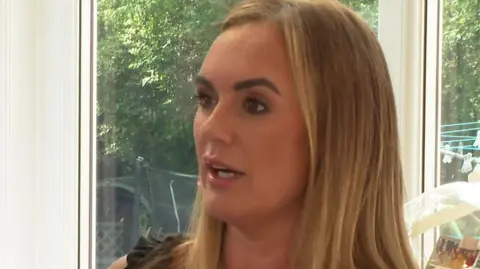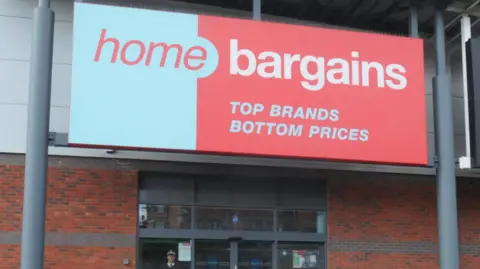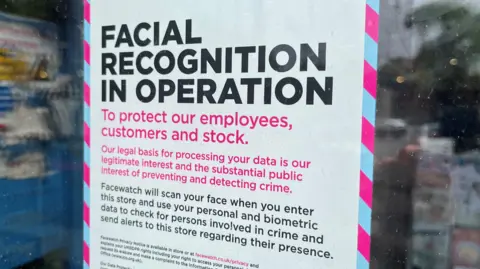Facial recognition error sees woman accused of theft
 BBC
BBCA woman who was wrongly accused of shoplifting toilet roll due to an apparent mix-up with a facial recognition system was left "fuming" after being ejected from two Home Bargains stores.
Danielle Horan was escorted from the branches in Greater Manchester in May and June and initially given no explanation.
She later discovered she was falsely accused of stealing about £10 worth of items after her profile was added to a facial recognition watchlist to prevent shoplifting.
Retail security firm Facewatch, which provides the technology, said: "We acknowledge and understand how distressing this experience must have been and the retailer has since undertaken additional staff training."
The firm said a review of the incident later showed the items had been paid for.
Home Bargains has declined to comment.
Ms Horan, who runs a makeup business, said she at first "thought it was a joke" when the manager of Home Bargains in Regent Road, Salford, asked her to leave the shop on 24 May.
She said: "Everyone was looking at me. All the customers at the till and I was like 'for what?'"
 PA Media
PA MediaAfter her protestations, the manager advised her to contact Facewatch directly but Ms Horan said she had "no joy" from her messages to the firm, or to Home Bargains.
She later visited another Home Bargains store in Fallowfield, Manchester, with her 81-year-old mother on 4 June.
"As soon as I stepped my foot over the threshold of the door, they were radioing each other and they all surrounded me and were like 'you need to leave the store'," she said.
"My heart sunk and I was anxious and bothered for my mum as well because she was stressed.
"But I was ready for it because of what happened the previous time. I just fought my corner and said 'you need to tell me why'."

It was only after repeated emails to both Facewatch and Home Bargains that she eventually found there had been an allegation of theft of about £10 worth of toilet rolls on 8 May.
Her picture had somehow been circulated to local stores alerting them that they should not allow her entry.
Ms Horan said she checked her bank account to confirm she had indeed paid for the items before Facewatch eventually responded to say a review of the incident showed she had not stolen anything.
"Because I was persistent I finally got somewhere but it wasn't easy, it was really stressful," she said.
"My anxiety was really bad – it really played with my mind, questioning what I've done for days. I felt anxious and sick. My stomach was turning for a week."
'Guilty by algorithm'
In one email from Facewatch seen by the BBC, the firm told Ms Horan it "relies on information submitted by stores" and the Home Bargains branches involved had since been "suspended from using the Facewatch system".
Madeleine Stone, senior advocacy officer at the civil liberties campaign group Big Brother Watch, said they had been contacted by more than 35 people who have complained of being wrongly placed on facial recognition watchlists.
"They're being wrongly flagged as criminals," Ms Stone said.
"They've given no due process, kicked out of stores. This is having a really serious impact."
"Historically in Britain, we have a history that you are innocent until proven guilty but when an algorithm, a camera and a facial recognition system gets involved, you are guilty."
Big Brother Watch has called for the UK government to completely ban facial recognition technology from retailers.
The Department for Science, Innovation and Technology said: "While commercial facial recognition technology is legal in the UK, its use must comply with strict data protection laws. Organisations must process biometric data fairly, lawfully and transparently, ensuring usage is necessary and proportionate.
"No one should find themselves in this situation."
Listen to the best of BBC Radio Manchester on Sounds and follow BBC Manchester on Facebook, X, and Instagram. You can also send story ideas via Whatsapp to 0808 100 2230.
